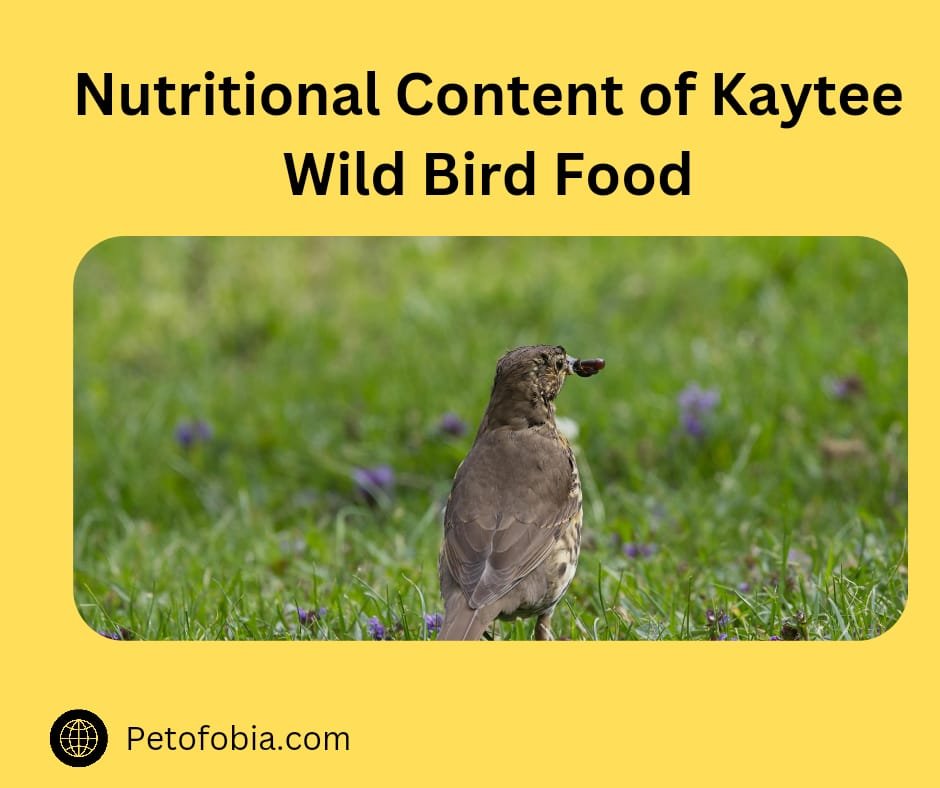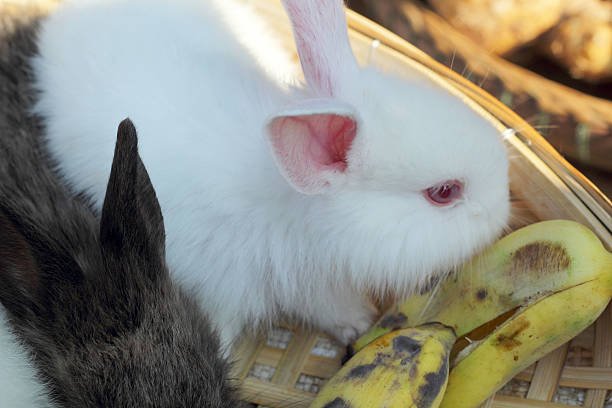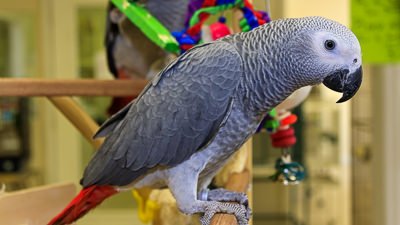Table of Contents
ToggleIntroduction to Kaytee Wild Bird Food
The Kaytee Wild Bird Food is one of the popular foods used for a wild bird. Attracting and nourishing different species of bird, it also provides essential nutrients. The mixture consists of grains, seeds and nuts to help a bird’s diet. It is intended as a way to improve health and energy. Wild birds need proper nutrition to survive. This formula is balanced for different types of birds and is for sure made by Kaytee. In this article, we are discussing the nutrition value of this bird food item.
Ingredients in Kaytee Wild Bird Food
Kaytee Wild Bird Food contains many seeds and grains. The main ingredients are sunflower seeds, millet and cracked corn. These components include the fat, fiber and essential proteins. These nutrients are necessary to birds for growth, energy and digestion.
Every ingredient plays a part in support of avian health. Seeds of high quality provide a nutritious meal. It is the right mix, drawing different birds and providing what they require in the diet. There are fresh and natural ingredients behind Kaytee and they are a reliable choice.
Protein Content in Kaytee Wild Bird Food
Muscle development and good nutrition both require protein. Sunflower and safflower seeds are high in protein in Kaytee Wild Bird Food. Theses seeds enable the birds to build a strong muscle and feathers. Reproduction and chick growth depend on protein. They are more active and more resilient. Protein in moderation ensures better function of metabolism and the immune system. Kaytee guarantees that its mix has enough protein. It helps with the well being of a young and an adult.
Healthy Fats for Energy and Warmth
Birds derive most of their energy from fat. Kaytee Wild Bird Food is high fat seeds, such as sunflower and peanuts. These are fats during colder months that give you warmth. Fat reserves are essential for birds to function for the duration of the day.
Fat helps during flights and an active lifestyle. Glossy feathers are also contributed by healthy fats. The unsaturated fats available in the ingredients chosen by Kaytee are beneficial. It contains the right amount of fat which helps you to digest and every other part of your body also gets benefited from it.
Fiber for Digestive Health
Fiber is needed for proper digestion by birds. The Kaytee Wild Bird Food also contains ingredients rich in fiber like millet and cracked corn. Besides, these help maintain proper digestion to avoid digestive problems. Fiber is the number one nutrient for supporting gut health and nutrient absorption.
Additionally, bird weight should remain healthy. The mix from Kaytee meets the needs of the daily fiber. Fiber levels are crucial in maintaining a healthy digestive tract and a person’s overall well being. Fiber rich food, thus lead to better health and vitality in birds.
Vitamins and Minerals in Kaytee Wild Bird Food
Wild Bird Food by Kaytee is fortified with important vitamins and minerals. These nutrients help bird’s health in general. Vitamin A improves vision and skin health. Vitamin D helps with calcium absorption for strong bones. Beaks and claws are strengthened with minerals such as calcium and phosphorus.
These nutrients are needed by birds for proper growth and immune function. An excellent balanced blend of vitamins and minerals, Kaytee. These nutrients are nutritive, and they prolong vitality and promote longevity in birds. A good diet is good for survival and reproductive success.
Antioxidants for Immune Support
Birds are protected from disease and aging by antioxidants. The natural antioxidants provided by seeds and nuts are contained in Kaytee Wild Bird Food. The compounds also help combat free radicals while bolstering immunity. The birds that have a strong immune system are able to withstand the harsh weather and infections.
Antioxidants also promote healthy skin and feather. Overall well being is largely based on how their metabolism is. With a good supply of antioxidants, the carefully chosen ingredients in Kaytee’s product are quite good. It keeps wild birds strong and active.
Calcium for Bone and Egg Health
Calcium is a very important nutrient for many birds during breeding season. The calcium sources include crushed shells and fortified grains in Kaytee Wild Bird Food. This mineral is important for bone strength and in eggshell production.
Weak bones and fragile eggs may result from calcium deficiency. Calcium intake is the way to healthier chicks and adult birds. Kaytee’s blend offers the right amount of calcium. This facilitates skeletogenesis and reproductive fitness. The better the birds can fend for themselves with the calcium they get, the better their environment will be.
Attracting a Variety of Birds
Kaytee Wild Bird Food is appealing to many species of birds. Cardinals, finches, blue jays, sparrows, are among the occupants of this mix. Birds have different preferences for the seeds it feeds. They offer a combination of the right nutrients to help attract divers.
In the word of birdwatchers, it’s fun to have witnessed a variety of species in your backyard. The Kaytee blend is formulated to be most attractive. This promotes the birds to come back often. Kaytee supports bird diversity in its consistent feeding. It is a win-win for providing high quality food for birds as well as for for the bird lovers.
Seasonal Nutritional Needs
Seasonal change in dietary need exists within all birds. Kaytee Wild Bird Food is seasonally adjusted. More fat is needed for birds in winter for warmth. They need extra protein for breeding in spring. Basis of summer diet is to hydrate and provide energy requirements.
In fact, feeding falls is ideal time for birds to prepare for migration. Kaytee’s formula changes for these seasonal changes. By providing the proper nutrition year-round, bird health is ensured. Seasonal feeding strategies lessen mortality. With Kaytee birds stay strong all year long.
Feeding Guidelines for Best Results
Methods of proper feeding promote bird health. Clean and dry a feeder, then put Place Kaytee Wild Bird Food inside. Keep refilling to maintain a flow. Get rid of moldy or stale foods to avoid becoming ill. Select feeders depending on the size of different birds.
Position feeders in safe areas out of the predator’s reach. Offer fresh water alongside food. Turn the placement and subsequent waste accumulation of food. It can observe the behavior of the bird to adjust the feeding habits. Following these guidelines maximizes benefits. Reinforced and correct feeding promotes bird activity.
Conclusion
Wild Bird Food can provide proper nutrition for wild birds and Kaytee Wild Bird Food offers just that. Thru its mixture of seeds, grains and nuts, it provides the essential protein, fat and fiber. The blend also contains vitamins, minerals and antioxidants for overall health.
Proper feeding supports bird growth, energy, and immunity. Kaytee is a high quality mix that will attract a wide species range. Birds survive all the year round with seasonal adjustments. Kaytee Wild Bird Food provides bird diversity and well being. A diet that is nutritious will improve survival and reproduction. Kaytee is the superior choice for protecting bird health and activity.





